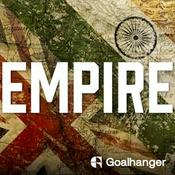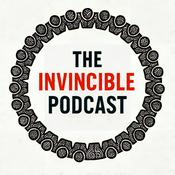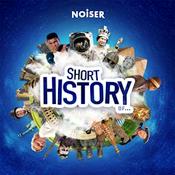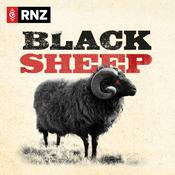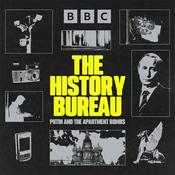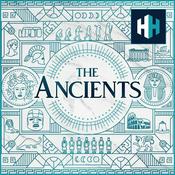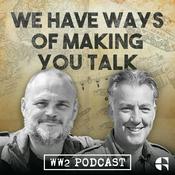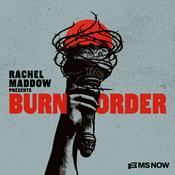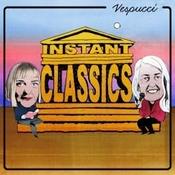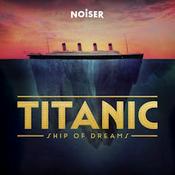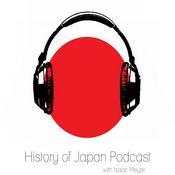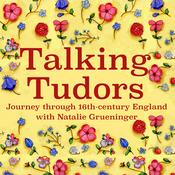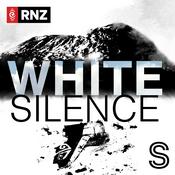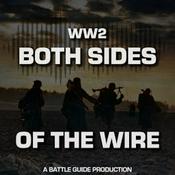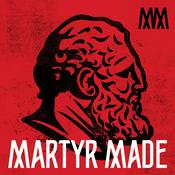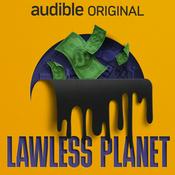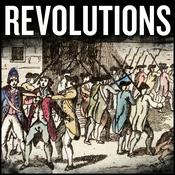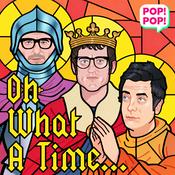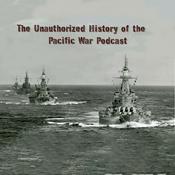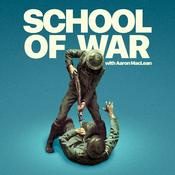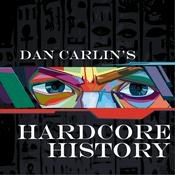189 episodes
- What do you say when someone doesn't trust science? In this Flashcards Friday episode, I share practical, evidence-based ways to talk about science with skeptics, without attacking, shaming, or arguing past each other.
This episode focuses on how evidence actually works, why people reject scientific claims, and how scientists and science communicators can lower defensiveness by explaining methods, uncertainty, and values clearly. If you care about public trust in science, this episode offers tools you can use immediately.
Resources & Further Reading
National Academies of Sciences — Communicating Science Effectively
Pew Research Center — https://www.pewresearch.org
Alan Alda Center for Communicating Science https://aldacenter.org
Science History Institute — Evidence, experiments, and scientific methods https://www.sciencehistory.org
Explore more on our website: mathsciencehistory.com
To buy my book Hypatia: The Sum of Her Life on Amazon, visit https://a.co/d/g3OuP9h
Enjoying the Podcast? 🔗 Explore more on our website: mathsciencehistory.com
upport the Show: Coffee!! PayPal
Leave a review! It helps more people discover the show!
Share this episode with friends & fellow history buffs!
Subscribe on your favorite podcast platform
Check out our merch: https://www.mathsciencehistory.com/the-store
Music: All music is public domain and has no Copyright and no rights reserved.
Selections from The Little Prince by Lloyd Rodgers
Until next time, carpe diem! - Episode Overview
In the 1660s, two towering thinkers, Thomas Hobbes and Robert Boyle, clashed over a strange new machine: the air pump. What looked like a technical disagreement about air and vacuum quickly became something much larger.
This episode examines how Boyle's experimental approach and Hobbes's philosophical skepticism shaped the foundations of modern science, and why their dispute still echoes today in debates over expertise, public trust, and the role of scientists in public policy. From the invention of "virtual witnessing" to modern struggles with misinformation, this is a story about how facts become believable, and what happens when trust breaks down.
What You'll Learn
Why experiments alone do not create trust - You'll learn how Boyle's air-pump experiments required not just data, but carefully crafted descriptions and shared norms to make results credible beyond the room where they occurred.
What Hobbes was really worried about - This episode explains why Hobbes objected to experimental science, not because he rejected evidence, but because he feared the political and social consequences of letting small groups "certify reality."
How this 17th-century dispute explains modern science debates - From climate models to medical guidelines, you'll see how today's arguments over evidence, institutions, and public policy replay the same structural tensions Hobbes and Boyle exposed centuries ago.
📚 Resources & Further Reading
Leviathan and the Air‑Pump - Steven Shapin & Simon Schaffer
New Experiments Physico‑Mechanicall, Touching the Spring of the Air - Robert Boyle
Royal Society - History & motto Nullius in verba
Pew Research Center - Public trust in scientists and policy debates (Nov. 2024 report)
Shapin, Steven. "Pump and Circumstance: Robert Boyle's Literary Technology." Social Studies of Science (1984)
🔗 Explore more on our website: mathsciencehistory.com
📚 To buy my book Hypatia: The Sum of Her Life on Amazon, visit https://a.co/d/g3OuP9h
🌍 Let's Connect!
Bluesky: https://bsky.app/profile/mathsciencehistory.bsky.social
Instagram: https://www.instagram.com/math.science.history
Facebook: https://www.facebook.com/mathsciencehistory
LinkedIn: https://www.linkedin.com/company/math-science-history/
Threads: https://www.threads.com/@math.science.history
Mastodon: https://[email protected]
YouTube: Math! Science! History! - YouTube
Pinterest: https://www.pinterest.com/mathsciencehistory
🎧 Enjoying the Podcast?
☕ Support the Show: Coffee!! PayPal
Leave a review! It helps more people discover the show!
Share this episode with friends & fellow history buffs!
Subscribe on your favorite podcast platform
Check out our merch: https://www.mathsciencehistory.com/the-store
Music: All music is public domain and has no Copyright and no rights reserved.
Selections from The Little Prince by Lloyd Rodgers
Smooth Piano for Documentaries by Universefield from Pixabay
Background Royalty Free Music - Emotional Piano by NotAIGenerated from Pixabay
Ambiant Clean Piano by Alfarran Basalim from Pixabay
Autumn Vibes by Clavier-Music from Pixabay
Now You Are Here by Sergey Cheremisinov from Pixabay
Until next time, carpe diem! - The Sun Dagger on Fajada Butte in Chaco Canyon is a powerful reminder that understanding is built slowly. Long before textbooks and lab reports, careful observers tracked repeating patterns in light and season, and a community carried that knowledge forward.
In today's Flashcards episode, we use the Sun Dagger as a practical thinking tool for modern life: watch first, listen second, explain last. It is a simple sequence that improves scientific judgment, reduces snap conclusions, and makes our relationships more accurate and humane.
Three Flashcards from a Stone Calendar
Watch first: patterns beat snapshots. - You will learn how to train yourself to notice what repeats over time, instead of overreacting to one data point, one headline, or one tense moment.
Listen second: knowledge is a group project. - You will learn why strong conclusions often require other perspectives, conflicting results, and context you cannot access alone.
Explain last: meaning should emerge, not be forced. - You will learn how delaying your explanation can reduce error, lower arrogance, and prevent real harm in science and everyday decisions.
Links to Resources
National Park Service overview of Fajada Butte and the Sun Dagger
NPS article on archeoastronomy and the Sun Dagger concept
🔗 Explore more on our website: mathsciencehistory.com
📚 To buy my book Hypatia: The Sum of Her Life on Amazon, visit https://a.co/d/g3OuP9h
🌍 Let's Connect!
Bluesky: https://bsky.app/profile/mathsciencehistory.bsky.social
Instagram: https://www.instagram.com/math.science.history
Facebook: https://www.facebook.com/mathsciencehistory
LinkedIn: https://www.linkedin.com/company/math-science-history/
Threads: https://www.threads.com/@math.science.history
Mastodon: https://[email protected]
YouTube: Math! Science! History! - YouTube
Pinterest: https://www.pinterest.com/mathsciencehistory
🎧 Enjoying the Podcast? 🔗 Explore more on our website: mathsciencehistory.com
☕ Support the Show: Coffee!! PayPal
Leave a review! It helps more people discover the show!
Share this episode with friends & fellow history buffs!
Subscribe on your favorite podcast platform
Check out our merch: https://www.mathsciencehistory.com/the-store
Music: All music is public domain and has no Copyright and no rights reserved.
Selections from The Little Prince by Lloyd Rodgers
Until next time, carpe diem! - More than a thousand years ago, the Ancestral Puebloans built a working solar calendar without clocks, written mathematics, or mechanical instruments. Etched into stone at Fajada Butte in Chaco Canyon, the Sun Dagger used light and shadow to track solstices and equinoxes with remarkable precision.
In this episode, we explore how the Sun Dagger worked, why its spiral design mattered, and what it reveals about community, long-term observation, and scientific thinking before modern technology. This is a story about astronomy, patience, and the shared human effort to understand time by watching the natural world carefully and collectively.
Three Take-aways
Watching the Sky: How the Sun Dagger Actually Worked – Learn how shifting sunlight, stone slabs, and spiral petroglyphs combined to create a precise solar calendar that could show not only when a solstice arrived, but how close the community was to it.
Science Before Equations: Observation as Knowledge – Discover why the Sun Dagger is an example of observational science, built through repeated watching, long-term pattern recognition, and intergenerational knowledge rather than written formulas or instruments.
Time as Community: Why Calendars Were Shared, Not Personal – Understand how tracking time was not an individual activity but a communal one, guiding ceremonies, gatherings, and social coordination while reinforcing shared responsibility and connection to the land.
Resources & Further Reading
National Park Service – Chaco Culture National Historical Park https://www.nps.gov/chcu
High Altitude Observatory (NCAR) – The Sun Dagger of Fajada Butte https://www2.hao.ucar.edu/education/prehistoric-southwest/sun-dagger
Sofaer, Anna, David H. Sinclair, and Ray A. Doggett. "A Unique Solar Marking Construct." Science 206, no. 4416 (1979): 283–291. https://www.jstor.org/stable/1749388
Aveni, Anthony F. Skywatchers. University of Texas Press.
Krupp, E. C. Echoes of the Ancient Skies. Oxford University Press.
Explore more on our website: mathsciencehistory.com
To buy my book Hypatia: The Sum of Her Life on Amazon, visit https://a.co/d/g3OuP9h
🌍 Let's Connect!
Bluesky: https://bsky.app/profile/mathsciencehistory.bsky.social
Instagram: https://www.instagram.com/math.science.history
Facebook: https://www.facebook.com/mathsciencehistory
LinkedIn: https://www.linkedin.com/company/math-science-history/
Threads: https://www.threads.com/@math.science.history
Mastodon: https://[email protected]
YouTube: Math! Science! History! - YouTube
Pinterest: https://www.pinterest.com/mathsciencehistory
🎧 Enjoying the Podcast?
☕ Support the Show: Coffee!! PayPal
Leave a review! It helps more people discover the show!
Share this episode with friends & fellow history buffs!
Subscribe on your favorite podcast platform
Check out our merch: https://www.mathsciencehistory.com/the-store
Music: All music is public domain and has no Copyright and no rights reserved.
Selections from The Little Prince by Lloyd Rodgers
Old Tolchaco by Arizona Guide from Pixabay
A Tribute to Native Americans by Andrea Good from Pixabay
Until next time, carpe diem! - If you enjoy the hidden science behind everyday life, leave a review, subscribe to the podcast and share this episode with someone who is shoveling snow this winter.
Shoveling snow looks simple, but it is one of the most punishing everyday tasks your body can perform. In this Flashcard Friday episode, we explore the physics hiding in plain sight every winter, from why lifting snow feels brutal to why wet snow seems impossibly heavy and why shovel design matters more than most people realize.
This is not about grit or toughness. It is about gravity, force vectors, density, and torque, all acting on a human spine that was never designed to move heavy loads at arm's length.
By the end of the episode, you will understand exactly why your back complains so loudly, and why physics is to blame.
Three big scoops:
Why Gravity Is Not Your Friend - Why lifting snow is far harder than pushing it, and how vertical forces and spinal torque make even small loads feel overwhelming.
Why Wet Snow Is a Secret Weightlifter - How density transforms harmless-looking snow into a back-breaking mass, and why the same shovel can weigh several times more depending on snow type.
Why Your Shovel Is Working Against You - How short shovels increase lever arms, magnify torque, and place unnecessary strain on your lower back, and why ergonomic designs actually make physical sense.
Helpful Resources
· NASA: Forces and Motion Basics – https://www1.grc.nasa.gov/beginners-guide-to-aeronautics/newtons-laws-of-motion/
Khan Academy: Torque and Rotational Motion – https://www.khanacademy.org/science/physics/torque-angular-momentum
NIH: Back Injury Risk and Lifting Mechanics - https://pmc.ncbi.nlm.nih.gov/articles/PMC8720246
Explore more on our website: mathsciencehistory.com
To buy my book Hypatia: The Sum of Her Life on Amazon, visit https://a.co/d/g3OuP9h
🌍 Let's Connect!
Bluesky: https://bsky.app/profile/mathsciencehistory.bsky.social
Instagram: https://www.instagram.com/math.science.history
Facebook: https://www.facebook.com/mathsciencehistory
LinkedIn: https://www.linkedin.com/company/math-science-history/
Threads: https://www.threads.com/@math.science.history
Mastodon: https://[email protected]
YouTube: Math! Science! History! - YouTube
Pinterest: https://www.pinterest.com/mathsciencehistory
🎧 Enjoying the Podcast? 🔗 Explore more on our website: mathsciencehistory.com
Do you want the ad-free podcast?! Visit us at Supercast at www.MathScienceHistory.Supercast.com - pick a tier, and immerse yourself without the ads!
☕ Support the Show: Coffee!! PayPal
Leave a review! It helps more people discover the show!
Share this episode with friends & fellow history buffs!
Subscribe on your favorite podcast platform
Check out our merch: https://www.mathsciencehistory.com/the-store
Music: All music is public domain and has no Copyright and no rights reserved.
Selections from The Little Prince by Lloyd Rodgers
Until next time, carpe diem!
More History podcasts
Trending History podcasts
About Math! Science! History!
Math! Science! History! is about the history of people, theories, and discoveries that have moved our scientific progress forward and spurred us on to unimaginable discoveries. Join Gabrielle Birchak for a little math, a little science, and a little history. All in a little bit of time.
Podcast websiteListen to Math! Science! History!, Empire: World History and many other podcasts from around the world with the radio.net app
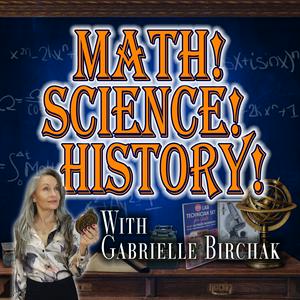
Get the free radio.net app
- Stations and podcasts to bookmark
- Stream via Wi-Fi or Bluetooth
- Supports Carplay & Android Auto
- Many other app features
Get the free radio.net app
- Stations and podcasts to bookmark
- Stream via Wi-Fi or Bluetooth
- Supports Carplay & Android Auto
- Many other app features


Math! Science! History!
Scan code,
download the app,
start listening.
download the app,
start listening.

